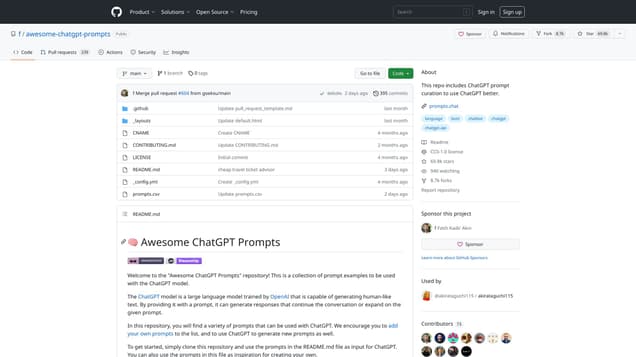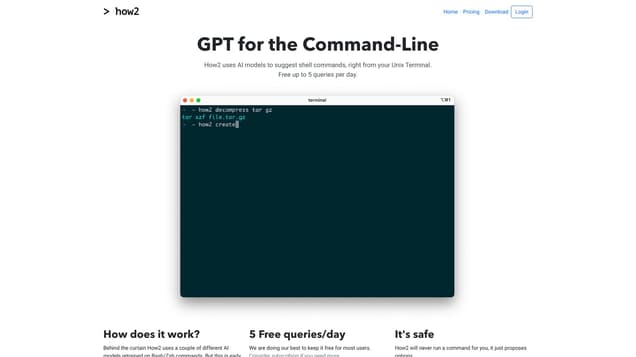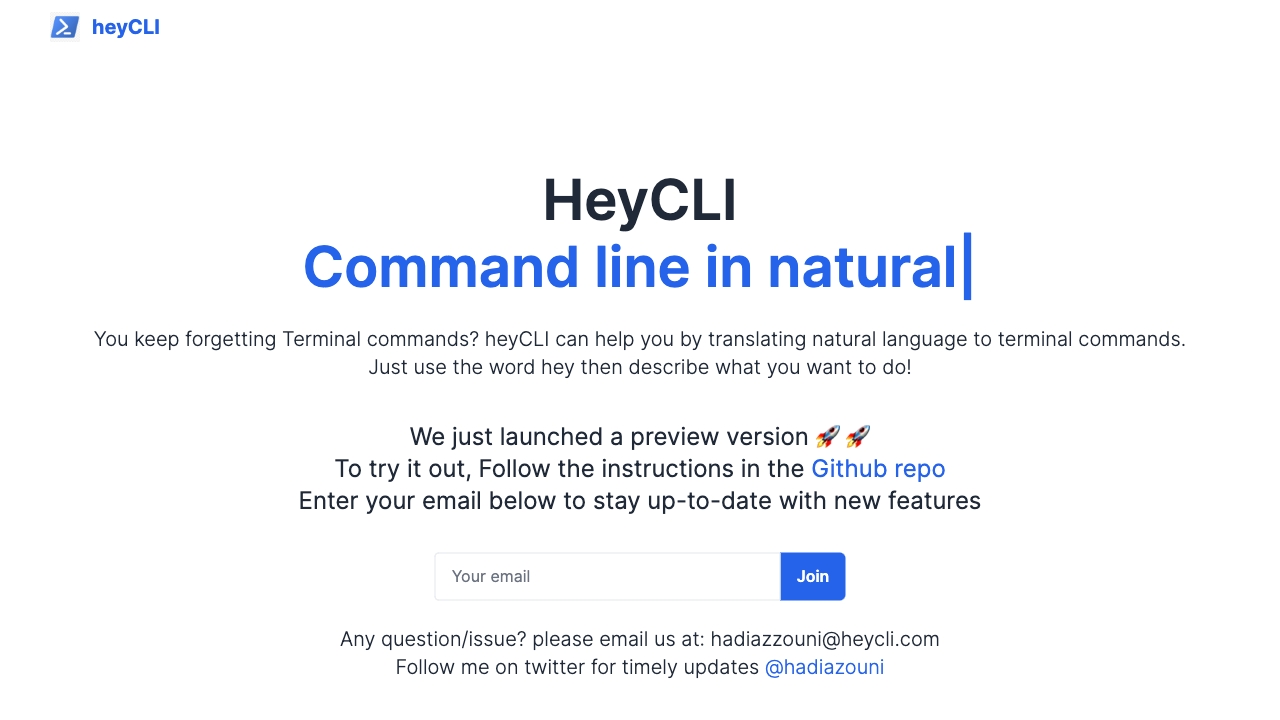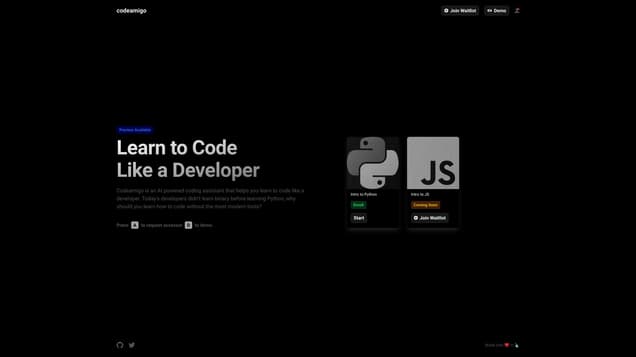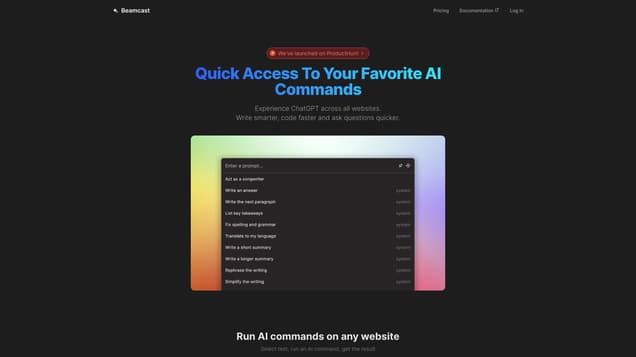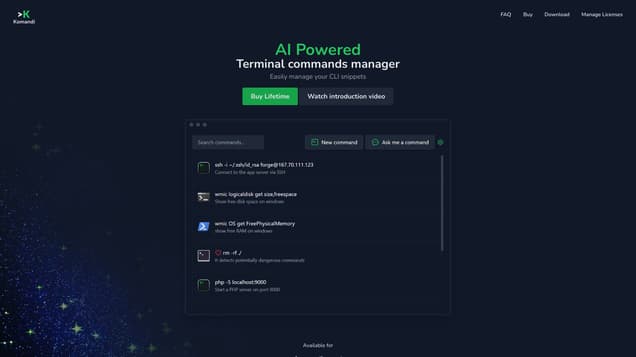
What is Komandi?
Komandi is a comprehensive tool designed specifically for developers and system administrators. Its primary purpose is to effectively manage and organize frequently used CLI commands. Additionally, Komandi incorporates advanced Artificial Intelligence capabilities to identify potentially hazardous commands and swiftly generate commands based on natural language prompts. With its wide range of features, Komandi greatly enhances command line efficiency and productivity for users in the development and system administration fields.
Information
- Financing
- $220.00M
- Revenue
- $7.10M
- Language
- English
- Price
- Paid
Pros VS Cons
- Pros
- Komandi offers a range of beneficial features such as command generation from prompts, detection of dangerous commands, execution on different environments, search functionality, and a lifetime subscription at an affordable price.
- Cons
- However, it has limitations such as paid command generation, a one device license limit, no account creation, limited command generation tokens, potential inaccuracies in command generation, and no free version or API integration.
Freework.ai Spotlight
Display Your Achievement: Get Our Custom-Made Badge to Highlight Your Success on Your Website and Attract More Visitors to Your Solution.
Website traffic
- Monthly visits1.21K
- Avg visit duration00:00:37
- Bounce rate80.87%
- Unique users865
- Total pages views1.62K
Access Top 5 countries
Traffic source
Komandi FQA
- What are the use cases of Komandi?

- Can I have a Trial?

- How does a license work?

- Can I get a refund?

- Why don't I need to create an account to buy a license?

Komandi Use Cases
Easily manage your CLI snippets
Generate terminal commands from natural language prompts using AI
Manage your most used commands
Detect potentially dangerous commands
Copy commands
Execute commands directly or on specific paths
Available for macOS, Windows, and Linux
Search for commands (allows to execute/copy using shortcuts)
Execute commands on different environments (Windows Terminal, PowerShell, iTerm2, Gnome Terminal, etc.)
Import/Export commands (soon)
